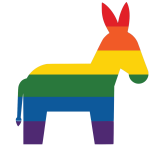
Homophobic language is a widely used and offensive pejorative in our culture. Common forms of homophobic language are “that’s so gay,” “you’re so gay,” or any use of the word “gay” to mean something is bad, uncool, or annoying. It is becoming less common for you to hear the word “gay” thrown around as a derogatory term, but kids especially still use it. Young people are increasingly using the expression “no homo,” after they’ve said something that might cause others to perceive them as gay. Other everyday expressions have a homophobic history or carry antigay connotations you might not realize. I want to discuss five common words and sayings with roots in homophobia.
The term “bugger” is not a term used in the United States very often though it was used in Colonial times and in the early years of the Republic. It is, however, quite common in Britain frequently used as an exclamation as in, “Oh, bugger! while “buggery” is synonymous with the act of sodomy. The modern English word “bugger” is derived from the French term bougre, which evolved from the Latin bulgarus or “Bulgarian.” The Catholic Church used the word to describe members of a religious sect known as the Bogomils who originated in medieval Bulgaria in the 10th Century and spread throughout Western Europe by the 15th Century. The Church used it as a term of offence against a group they considered heretical. The first use of the word “buggery” appears in Middle English in 1330 where it was associated with “abominable heresy” though the sexual sense of “bugger” is not recorded until 1555. The Oxford Dictionary of English Etymology quotes a similar form, “bowgard” (and “bouguer“) but claims the Bulgarians were heretics “as belonging to the Greek Church, sp. Albigensian.” Webster’s Third New International Dictionary gives the only meaning of the word “bugger” as a sodomite, “from the adherence of the Bulgarians to the Eastern Church considered heretical.” When someone is called a lazy little bugger, they probably don’t mean to accuse them of being a Bulgarian sodomite!
The term “nervous Nellie” borrows from “nelly” and “nancy,” archaic derogatory descriptors for gay men. The words imply gay men lack masculinity because of their sexual orientation. The phrase was popularized in the 1920s when it was used to refer to Secretary of State Frank Kellogg, a notoriously timid politician according to “Hatchet Jobs and Hardball: The Oxford Dictionary of American Political Slang.” Needless to say, it is as offensive to link homosexuality with timidity as it is offensive to criticize a meek politician as “gay” or “girlish.” These days, this term probably isn’t the best way to refer to an antsy or jittery friend. Typically, ‘nancy,’ ‘nelly,’ and others including ‘fag,’ ‘sissy,’ ‘fairy’ are used to perpetuate homophobia These slurs usually target people with male-sexed bodies who do not act sufficiently masculine. They are inherently sexist and frame femininity as an insult meant to emasculate men.
“On the down low” is a specific term rooted in the Black community. The phrase first referred to Black men who had secret homosexual relationships; it was later adopted by Black men who weren’t closeted, but who rejected white gay culture. Men first started claiming the label in the mid-1990s. Back then, the culture was completely under the radar, and DL men lived ostensibly heterosexual lives (complete with wives and girlfriends) while engaging in secret sexual relationships with men. The phrase remains rooted in paranoia about homosexuality, and the belief these men were spreading HIV/AIDS to heterosexual girlfriends and wives.
If you’ve recently been around male elementary school students, you’ve probably heard a lot about what “sucks.” And what does suck? A penis, of course! Expressing your distaste for something in terms of a blowjob equates it with a sexually submissive woman or man forced into a homosexual act. The notion that oral sex is inherently shameful also reflects a generally skewed view of sexuality in which sex acts entail one party being belittled by the other. Using sexual submission as an insult is essentially the same thing as calling something gay; it implies that fellatio is gross, degrading, and punishing particularly when it is performed by a man.
It is common knowledge that “faggot and fag” are offensive, but it’s worth revisiting why especially if you’re tempted to use tamer-seeming phrases like “fag hag.” The English words “faggot” and “fagot” come from Old French and first referred to bundles of sticks used as firewood. In the Middle Ages, men were burned alive at the stake for engaging in homosexual intercourse as well as other acts of heresy. By the time the Inquisition finished its work in the 17th Century, several million heretics and homosexuals had been burned at the stake. The Oxford English Dictionary (OED) revealed the words’ first uses referring to “a bundle of sticks, twigs, or small branches of trees bound together […..] for use as fuel” and “with special reference to the practice of burning heretics alive, esp. in [the] phrase, fire and faggot; to fry a faggot, to be burnt alive; also, to bear, carry a faggot as those did who renounced heresy.” According to the OED, in the early 20th Century, the term was adopted in the United States as a derogatory way to refer to homosexual and effeminate men. Curiously, the word “faggot” was not commonly adopted in the British Isles in the same sense; indeed, a “fag” in the United Kingdom is usually a slang term for a cigarette or used in the phrase “fagged out,” meaning exhausted.
Some in the gay community have reclaimed these terms, but that doesn’t make them fair game for everyone else. In fact, I don’t even like hearing them being uttered by gay people. When people use offensive language in their own community and claim it is only offensive when other people use the terms, that, in itself, is offensive. The words gay (used in a demeaning fashion), fag, sissy, fairy, queer, faggot can do psychological damage to a young person especially when used in a degrading way. These terms emphasize there is something wrong with being homosexual. It was one of the reasons it took me so long to acknowledge my own sexuality. Everything associated with homosexuality was deemed “bad,” an “abomination.” When the gay community normalizes these words, they don’t know the traumatic affect it can have on someone younger. I cringe whenever I hear these words. I don’t care who speaks them. I will never hear the word “queer” without hearing it in my mother’s voice filled with disgust. Other disparaging, homophobic slurs also bring back the torture many of us received from bullies while growing up.
In conclusion: the next time you start to use these words, take the time to think how they might affect those around you.
While we are on the topic of how words affect LGBTQ people, see the second half of this post where I have a few things to say about the language too often used concerning HIV and STI.














